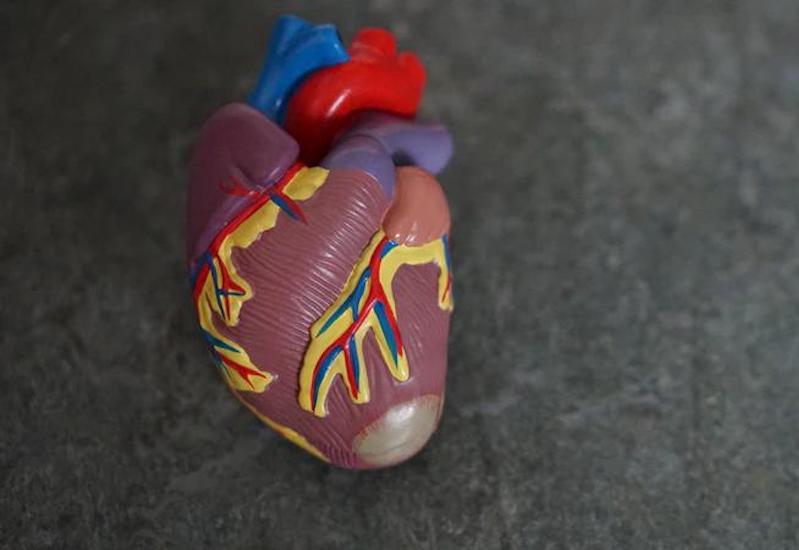What is the Link Between Sleep Apnea and Heart Disease?
By Dr Reginald Liew

Do you wake up in the night short of breath? Does your spouse complain about your snoring, or worse, say your breathing stops in the night? Does it seem like you can never get a full, restful night of sleep?
All of these may be indications that you have sleep apnea. This condition can cause all kinds of unpleasant side effects, and being sleep deprived is just the beginning. Suffering from untreated sleep apnea can also lead to an increased risk of heart disease. So, what is sleep apnea, how is it linked to heart health, and what should you do if you have symptoms?
What is sleep apnea?
One of the most obvious symptoms of sleep apnea is loud and frequent snoring. But, apnea has more severe consequences than just waking up your partner. There are two main types of sleep apnea, obstructive sleep apnea (OSA) and central sleep apnea (CSA). CSA is less common and happens when your brain fails to send the signals to your body, allowing your diaphragm to rise and fall.
The more common type of sleep apnea is called obstructive sleep apnea (OSA). When you sleep, your muscles relax. With OSA, the weight of your body becomes too great, which overcomes the ability of your relaxed muscles to keep the soft tissue of your upper respiratory system open. When this obstruction happens, you stop breathing. With severe OSA, this can occur up to 30 times per hour and cause you to stop breathing for a few seconds up to minutes.
How is this linked to Heart Disease?
When your body stops breathing, your heart rate slows down. Your nervous system then senses something is wrong and sends warning signals that wake you up suddenly (although you might not be fully conscious or aware of waking). This distress signal causes your heart to speed up rapidly. In turn, this raises your blood pressure, increased carbon dioxide levels in your blood, and cause inflammation. If left untreated, these conditions compound over time and lead to high blood pressure, heart disease, heart attack, stroke, type 2 diabetes, and liver problems. Sleep apnoea also increases the risk of patients developing cardiac arrhythmias, including atrial fibrillation. A number of studies have shown that the heart conditions can be improved when sleep apnoea is successfully treated.
Am I at risk?
If you are male, overweight, or an older person, you have a higher risk of developing sleep apnea and related heart health complications. While males are more likely to have sleep apnea, women are not immune. Overweight, postmenopausal women also have an increased risk. No matter your age or gender, those above a healthy weight are more at risk for OSA because of the added weight on the chest and neck when sleeping. Those who have had a brain stem stroke are at risk for CSA. Just because you fall into any of these categories does not necessarily mean you will develop sleep apnea. Still, they are risk factor indicators if you have any sleep apnea symptoms.
What are the symptoms?
If you sleep in the same bed as another person, the most common indicator of sleep apnea is that you frequently wake them with loud snoring. They may also notice that you stop breathing for short periods or seem to be gasping for breath in your sleep. Whether you sleep alone or with someone else, there are several other factors you should keep an eye on.
Because you may not fully awaken when your body sends distress signals, you may not be aware of the more obvious signs of sleep apnea. Other symptoms include waking up with a dry mouth, feeling lethargic during the day although you seem to have slept soundly through the night, unexplained irritability, inability to concentrate, and waking up with a headache. If you have any combination of these symptoms, it is worth discussing the possibility of sleep apnea with your doctor.
How is sleep apnea diagnosed?
The first step to a diagnosis is to see your regular doctor. After discussing your symptoms and risk factors, they will often recommend you to a specialist if your situation is cause for concern. The most common test that sleep specialists perform to diagnose sleep disorders is called polysomnography. Also called a sleep study, the doctor will monitor several aspects while you sleep, such as brain waves, breathing, heart rate, eye and leg movements, and blood oxygen levels. This comprehensive study allows the doctor to determine what condition is causing your symptoms, such as apnea, narcolepsy, or restless leg syndrome. Most basic sleep studies can be done in the comfort of your own home rather than the traditional full polysomnography which is done in a specialized sleep lab.
What should I do to prevent or treat sleep apnea?
For mild cases of sleep apnea, your doctor will usually prescribe lifestyle changes to ease your symptoms. Regular exercise and a healthy diet to reduce your weight ease your chest pressure, which lessens or eradicates apnea issues. Limiting alcohol and caffeine can also be effective measures. For moderate to severe cases, your doctor will likely recommend you use a continuous positive airway pressure device (commonly called a CPAP) that will mechanically keep your airways open during sleep.

